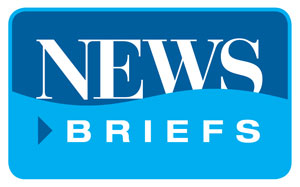The Green Bay (Wisconsin) Water Utility announced recently that it has removed its last lead pipe in the city, a milestone that has seen 1,782 utility-owned lead pipes replaced since 2016, according to the Green Bay Press Gazette.
The utility’s general manager tells the newspaper that the city’s lead levels are far lower than they used to be. In 2011, Green Bay Water Utility discovered that lead levels in some homes exceeded U.S. EPA limits.
Municipalities Seek Solutions as Customers Fall Behind On Payments
As unpaid sewer and water bills continue to mount around the nation during the COVID-19 pandemic, municipalities are facing decisions about whether or not to extend moratoriums on utility shutoffs or how best to assist customers who can’t afford to pay right now.
In Vermont’s Grand Isle Consolidated Water District, unpaid bills are five times higher than normal, and the utility is missing out on a state aid program, according to VTDigger. “We know our neighboring systems are seeing the same large increase in unpaid accounts,” the district’s treasurer tells the news organization.
Meanwhile, in Iowa, Gov. Kim Reynolds and the Iowa Economic Development Authority (IEDA) have announced the launch of the new Residential Utility Disruption Prevention Program. The program will provide eligible households with up to $2,000 toward electric, natural gas and water bills if they are at risk of disconnection due to an inability to pay due to a COVID-19-related loss of income. Payments through the program will be made directly to utility providers and applied to the applicant’s account.
“We are facing an unprecedented pandemic and from the very beginning the state has made it a priority to provide critical assistance to families, farmers, renters, homeowners, and small-business owners,” says Reynolds. “For Iowans who lost their job or saw their paycheck shrink as a result of the COVID-19 pandemic, the Residential Utility Disruption Prevention Program will help them keep the power on and their water running.”
Flint Residents Accuse Banks of Aiding in Water Crisis
According to The Detroit News, residents of Flint, Michigan, who are involved in lawsuits over the Flint Water Crisis are now accusing three investment banks of aiding the city’s plan to switch its water source in 2014.
The lawsuit alleges that the three banks knowingly put Flint at risk when they financed the city in a $220 million municipal bond sale to construct a new water pipeline.






